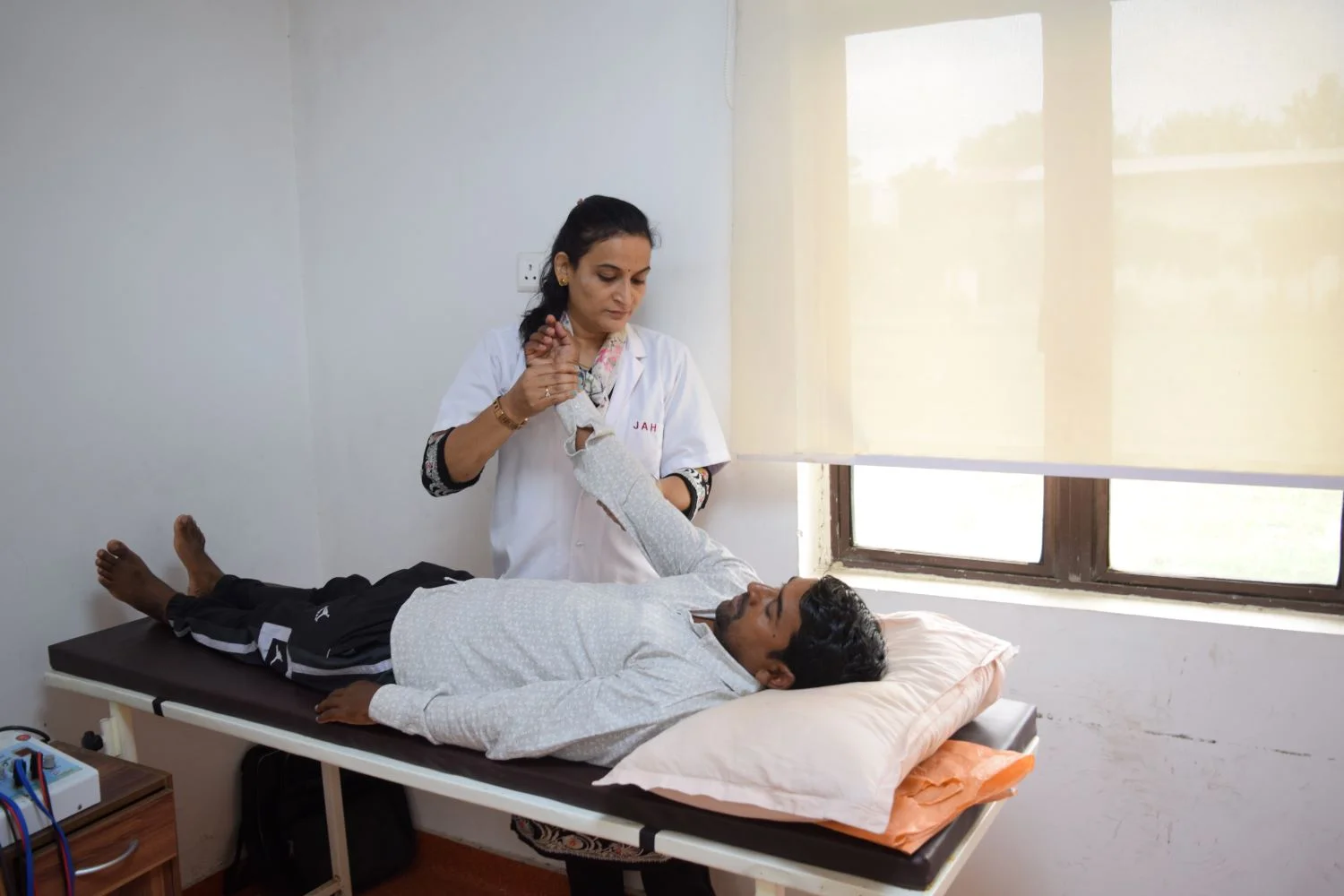Overview
Physiotherapy is a branch of medicine focused on improving movement and enhancing the quality of life. It is a treatment method that employs physical techniques rather than medication or surgery. Physiotherapists use exercises, manual therapy, and other methods to help individuals recover from injuries, manage chronic conditions, and improve overall physical function.
A typical session involves exercises as per the patient’s needs and may include the use of modalities like heat or cold therapy, ultrasound, or electrical stimulation. The duration of physiotherapy depends on the individual’s condition and progress, with some requiring only a few sessions while others may need ongoing therapy.


Physiotherapy can help in conditions like back pain, neck pain, arthritis, and sports injuries benefit from physiotherapy. For conditions such as stroke, Parkinson’s disease, multiple sclerosis, and cerebral palsy, physiotherapy aids in improving movement, balance, and coordination. After surgeries like joint replacements or fractures, physiotherapy supports recovery by enhancing mobility, strength, and function. Physiotherapy assists in the rehabilitation of patients with heart disease or those recovering from heart surgery. Physiotherapy can help children with developmental delays, congenital disorders, or injuries. It focuses on improving motor skills, coordination, and overall physical development.
In today's world, physiotherapy plays a crucial role in managing health and enhancing quality of life across diverse populations. Physiotherapy is a valuable tool for improving physical health and managing pain. If you’re dealing with physical issues or want to enhance your overall well-being, consider talking to a physiotherapist to see how their expertise can benefit you.
